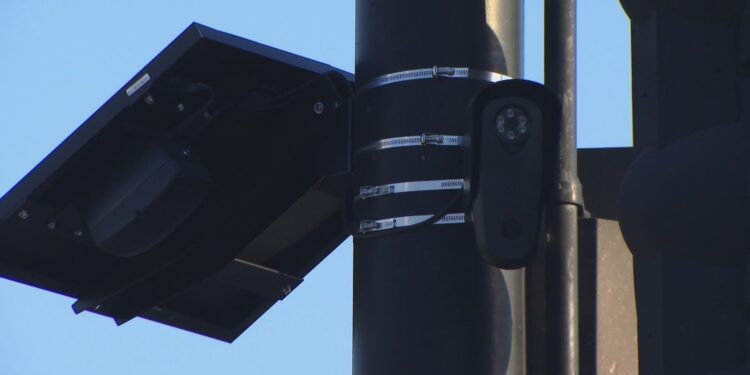Redmond Police Department is deploying Automated License Plate Readers across the city to respond more quickly to crimes and other incidents, adding to the department’s expanding collection of advanced surveillance technologies.
The ALPR cameras automatically alert officers and analysts when vehicles linked to crimes, missing persons, stolen vehicles, or other critical incidents are detected. Police Chief Darrell Lowe said the system is designed specifically to track vehicles involved in crimes or emergencies rather than conduct general surveillance.
Before any action is taken, every alert is verified and confirmed to ensure accuracy, according to a police news release Tuesday. The deployment represents the latest embrace of advanced technology for public safety in the Eastside city.
Redmond Police has previously implemented several high-tech tools including GPS trackers that can be fired at fleeing suspects and handheld narcotics analyzers capable of identifying more than 530 controlled substances through packaging. The department also became the first Washington agency to receive FAA approval for operating drones beyond visual line of sight.
The department’s Drones as First Responders program, launched through a partnership with Seattle-based provider Brinc, uses unmanned aircraft for suspect apprehension, crime scene documentation, missing person searches, fire assessment, and building clearance operations.
Police outlined strict safeguards governing ALPR use, including restricting equipment to public areas, prohibiting facial recognition or random surveillance, limiting data access to authorized personnel, logging all system use, and not retaining data from vehicles without alert tags.
“We use them solely to track vehicles involved in crimes or emergencies, ensuring that privacy and individual rights are always respected,” Lowe stated.
Seattle Police Department also uses ALPR technology through its recently launched Real Time Crime Center and expanded the program to all patrol vehicles following City Council approval last year. The parallel implementation suggests broader regional adoption of automated license plate monitoring systems.
The technology promises improved response times for vehicle-related crimes and enhanced capabilities for locating missing persons, though the department emphasized its commitment to privacy protection through the outlined safeguards and audit procedures.






